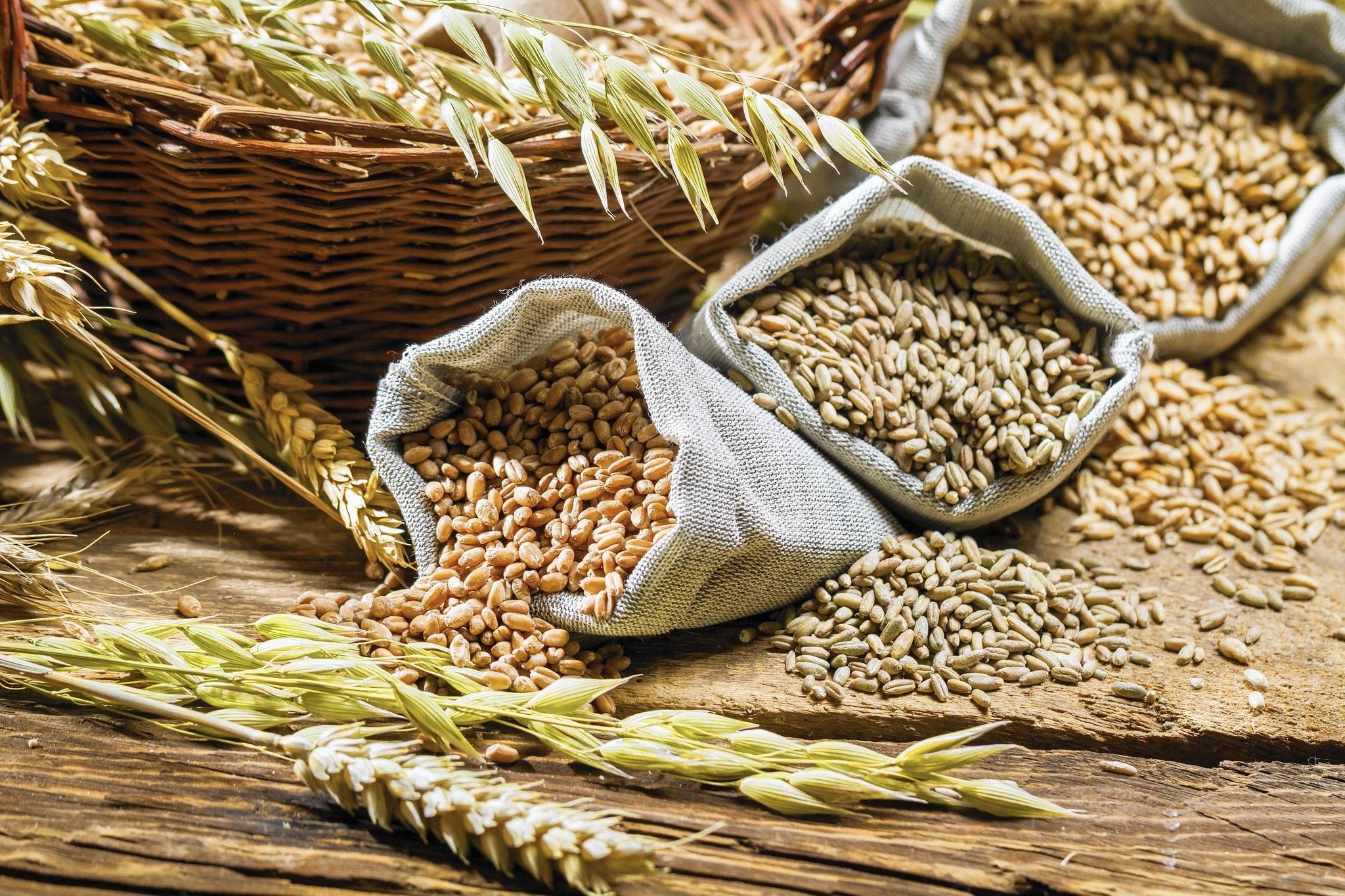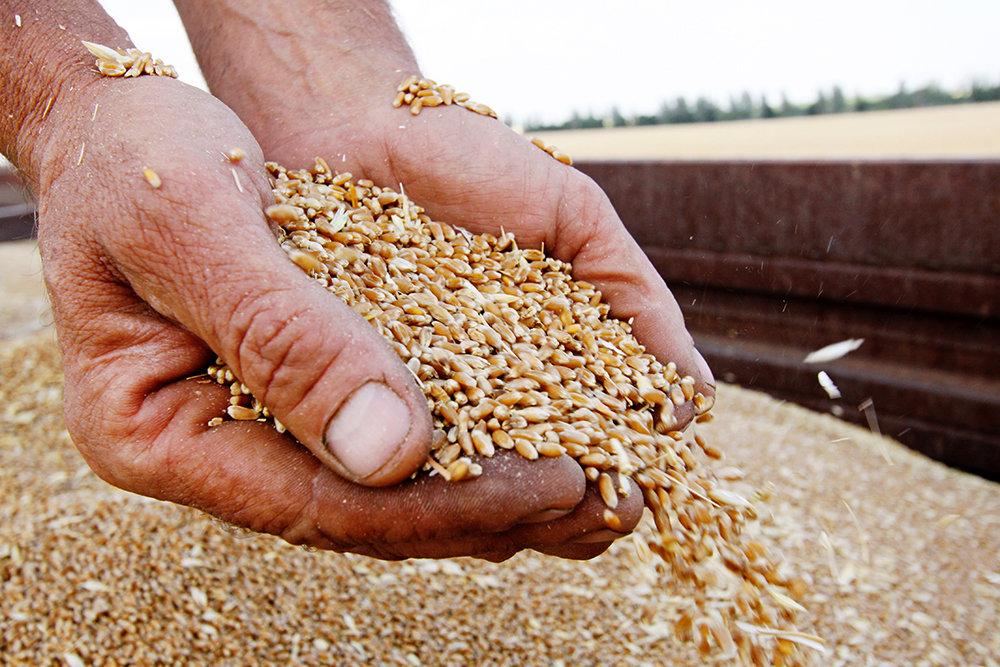Azerbaijan manages to avoid grain crisis, stakes on self-sufficiency Review by Caliber.Az
The food crisis of 2021-2022 once again confronted the developing and even advanced states of the world with a seemingly long-forgotten problem of basic food shortages and their tangible rise in price. One of the consequences of the Russian-Ukrainian war was the general deglobalization of trade and established logistical schemes, and the collapse of the single food market, which for so long provided access to cheap food. Today, regionalization of trade in grain and other agricultural raw materials is becoming a key trend; moreover, the UN in its recommendations calls on the countries of the world to speed up efforts to self-sufficiency in food, making this principle the basis of their security. Azerbaijan also follows this path and the other day the head of the state outlined the basic vectors of achievement of grain self-sufficiency of the republic.
The acuteness of the global food crisis is being gradually alleviated thanks to Türkiye's initiative on the creation of safe corridors for the export of Ukrainian grain and other agricultural products. According to Ukrainian President Volodymyr Zelensky, since the start of the launch of grain corridors, 16 ships with half a million tons of corn, wheat, sunflower oil, soybeans, and other foodstuffs have been sent from Ukrainian Black Sea ports, the recipients of which were seven countries in Europe, Africa, and Asia.
The deblocking of the grain trade in Black Sea ports, as well as favorable current forecasts for cereal and oilseed production in the Northern Hemisphere, have generally contributed to some easing of tensions in the food market. According to the UN Food and Agriculture Organization (FAO), by early August there was a 14.5% drop in food wheat prices, feed grains were down 11.2%, and vegetable oil prices were down 19.2%. Certainly, it is too early to speak about the complete overcoming of the food crisis, but the preconditions for this are outlined.

In particular, according to the Ministry of Agriculture of Türkiye, over the past three weeks, grain prices in the local markets of several countries of the Black Sea-Mediterranean region decreased from 450 to 350 dollars. On the other hand, a good grain harvest in Russia (the main producer in the post-Soviet space) helps to soften the export policy of this country. Thus, on August 12, Russia produced 78 million tons of grain, overcoming the critical threshold of food security in this country. According to forecasts, the current Russian grain crop may reach 130 million tons, including 87 million tons of wheat, which is noticeably bigger than last year's figures. This opens up considerable opportunities for the export of Russian grain, including the CIS countries.
A good harvest was also observed in neighboring Kazakhstan, where exports increased to 6.4 million tons from September 2021 to May 2022: in June-July, supplies to countries near and far abroad – the EU, Türkiye, the Middle East, including Azerbaijan, increased.
Thanks to the increase in exports of Ukrainian, Russian and Kazakh wheat, the agitated demand at the grain exchanges in the region is gradually decreasing and, eventually, the wholesale prices are going down. This is very important for Azerbaijan as well since about 40% of durum wheat baking in the country has to be imported from abroad. For example, in 2021 about 1.1 million tons of wheat were supplied to the country, and Russian producers accounted for about 90% of all imports. Such dependence on the Russian market carries serious risks, in fact, that is why the Azerbaijani government has taken a number of steps to change the geography of supply, repeatedly increasing purchases in Kazakhstan. As a result, Kazakh wheat exports to Azerbaijan in the current season increased by as much as eight times, up to 182,736 tons. At the same time, Baku and Moscow were able to settle some of the pitfalls of the regional grain trade in a bilateral format, as a result, export quotas, additional customs duties on the export of Russian wheat, flour, fertilizers and other restrictions of this kind that were introduced late last year had the least effect on deliveries to Azerbaijan.
"As a result of the Russian-Ukrainian war, many countries today are physically unable to provide their population with wheat, and grain because the main exporters of grain are Russia and Ukraine. But our country has no problems in this field: as a result of the agreements reached with our Russian partners, Azerbaijan exports as much grain and fertilizers as our country needs," President Ilham Aliyev said recently during his visit to Basgal village in the Ismayilli region. The head of the state especially emphasized that external factors and difficulties are objective reality and, taking into account these realities, practical work with partners is carried out to completely insure against emerging problems. However, the coordination of positions on imports serves to solve temporary problems, and the key vector of development to achieve sustainable food security in Azerbaijan should be the expansion of large commodity production directly in our country.
"I am confident that in the coming years, we will be able to significantly increase grain production through the implementation of irrigation projects, consistent implementation of agricultural and other measures, expansion of subsidies, thereby ensuring a large crop yield on the sown areas," President Ilham Aliyev said.

Noting the negative impact of imported inflation on the food market of the country, the head of state stressed the need to achieve the highest possible level of self-sufficiency through domestic food production. He reminded that today the country is 90% self-sufficient in meat products, 80% self-sufficient in poultry products, and 85% self-sufficient in dairy products, but we are working to bring the level of self-sufficiency in basic foodstuffs to all 100%. In particular, the key task is to increase the level of import substitution to the upper limit in the production of cereals, oilseeds, and fodder crops. "After the liberation of our lands from the occupation, I immediately gave instructions to start cultivation of crops on the liberated territories without losing time. This year 50 thousand hectares have been planted with grain, and the harvest is already coming to an end. I believe that it is necessary to put into circulation at least 100,000 hectares in the liberated territories under the grain, of course, provided that all modern agrotechnical measures are carried out," the President said, emphasizing the possibility of using the waters of Tartar, Khakari, Bazarchay and other rivers and reservoirs in the Karabakh region abundant with water resources for irrigation.
Azerbaijan produces on average just over 3 million tons of grain a year and to a large extent provides itself with fodder grain, in general, producing about 62% of the consumed grain. In order to increase these volumes, a month ago the head of state signed a decree on a number of measures to increase the level of self-sufficiency in food wheat. According to the decree, as a pilot project for 5 years, starting from 2023, subsidies will be provided to grain farms that use modern irrigation systems and have concluded appropriate contracts for the delivery of grain to the State Reserve Agency and to flour mills under contracts with the Ministry of Agriculture. The purpose of this decree is to stimulate through subsidies large and medium specialized grain farms and agro-parks to increase production of high-yield hard varieties of bread wheat as well as to improve mechanisms of issuing loans on favorable terms and under state guarantees for agrotechnical re-equipment of farms, purchase of modern irrigation systems, including beer systems, etc. It is expected that the purchase of about 40% of irrigation systems will be subsidized by the state, and the remaining funds will be provided at the expense of soft loans.
At the same time, amid the global inflation, Azerbaijani farmers faced a shortage of high-yield sowing seeds of wheat, barley, and other crops, and today it is no less important to stimulate the production of seeds in the country. According to experts, as the irrigation network and other agro-technical measures are modernized, the average yield from the current 32-34 centners per hectare can be increased to 45-50 centners, getting more wheat per unit area, which would reduce production costs and increase profitability.
Meanwhile, it is planned to involve the Azerbaijani lands liberated from the occupation in crop rotation: in general, the Karabakh region has 1 million hectares of suitable areas for agricultural production, including 128 thousand hectares of irrigated land, the most suitable for grain production. Of course, we must first complete the demining of the de-occupied territories and restore the water and other primary infrastructure. " I think that if we can provide ourselves with food wheat at the level of 80% in about three to four years, it will be a great result," President Ilham Aliyev formulated the key medium-term task.








